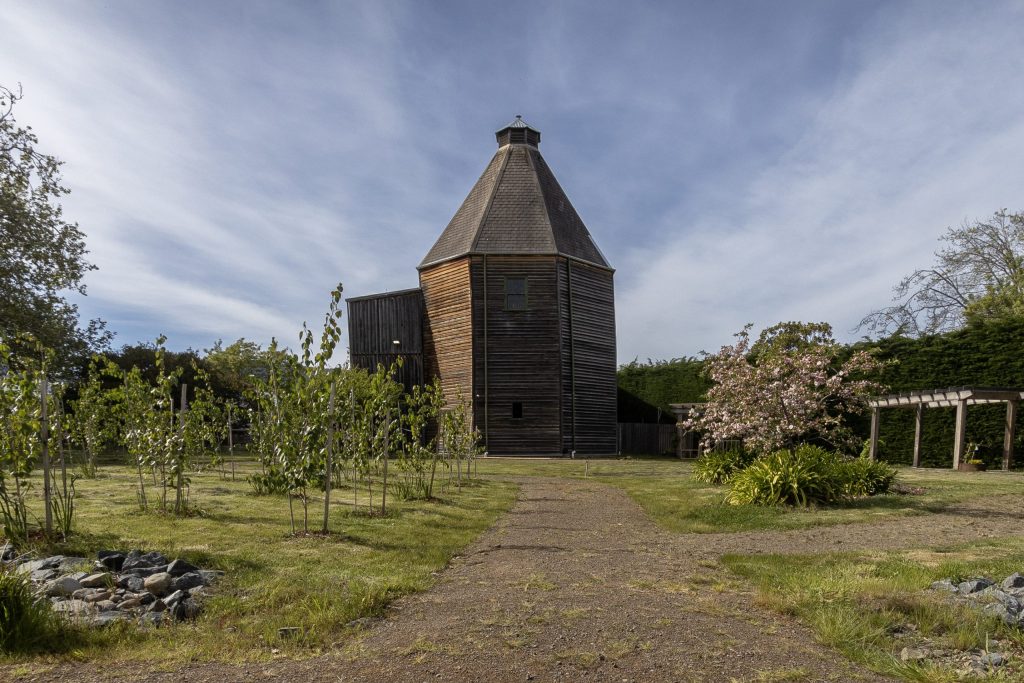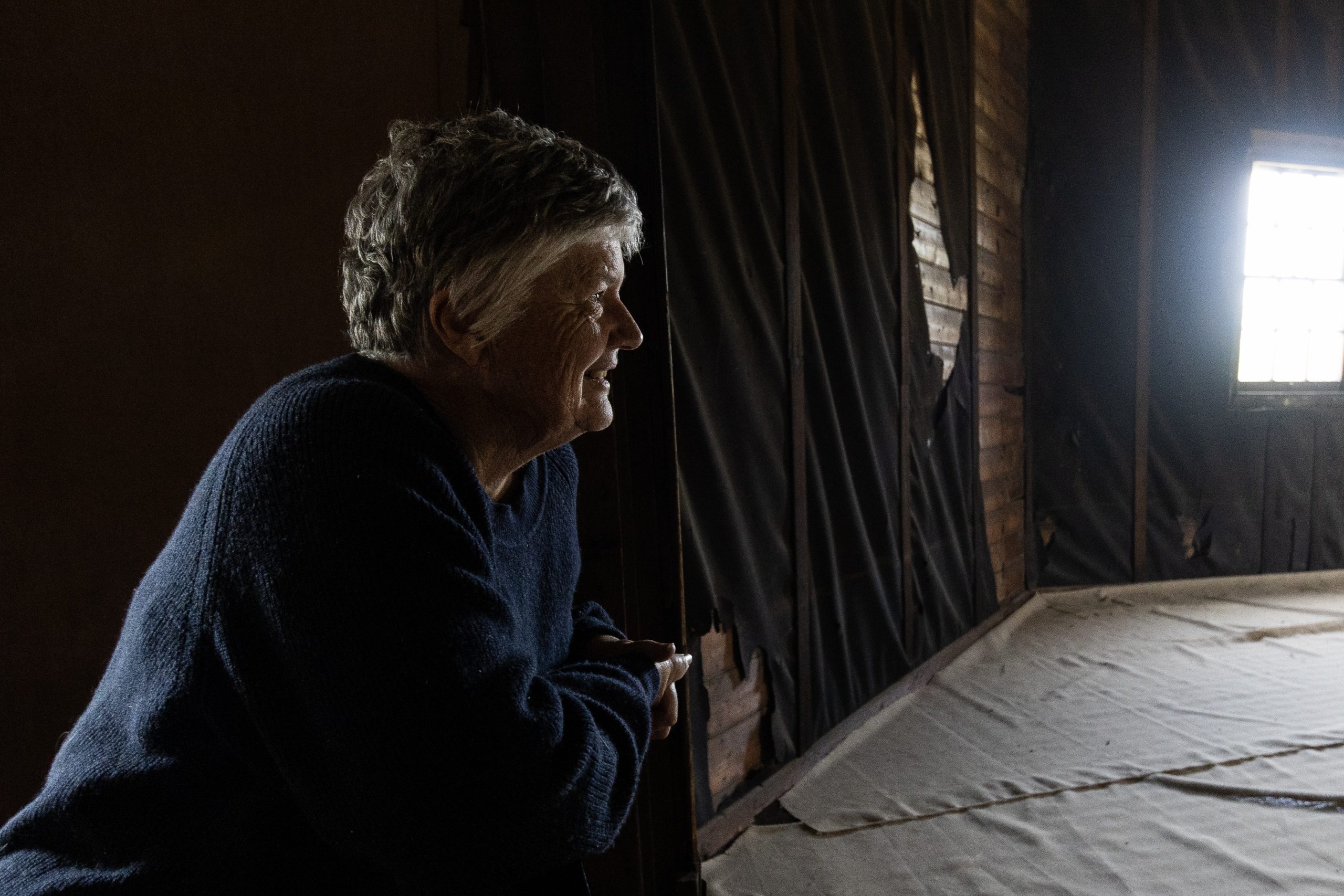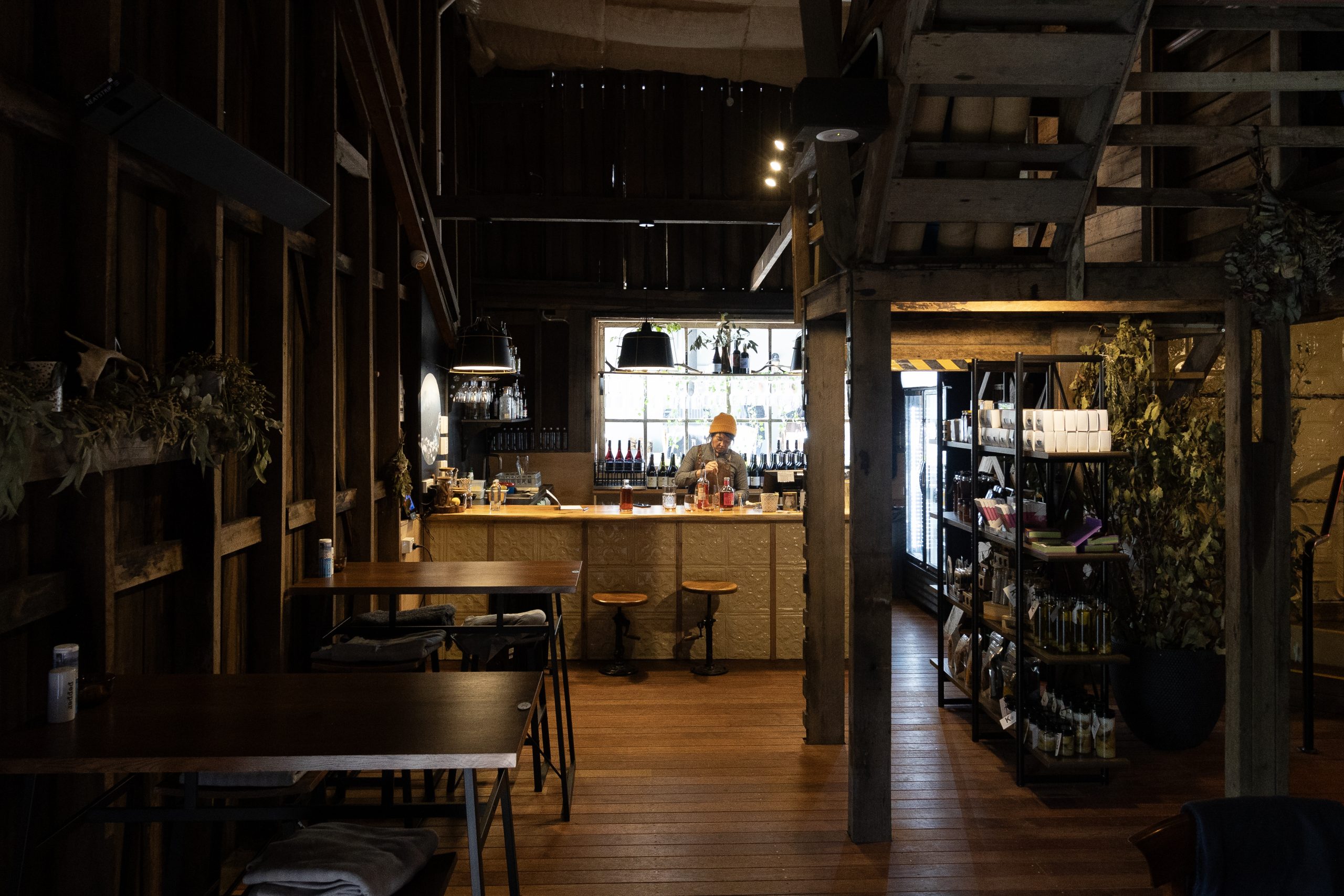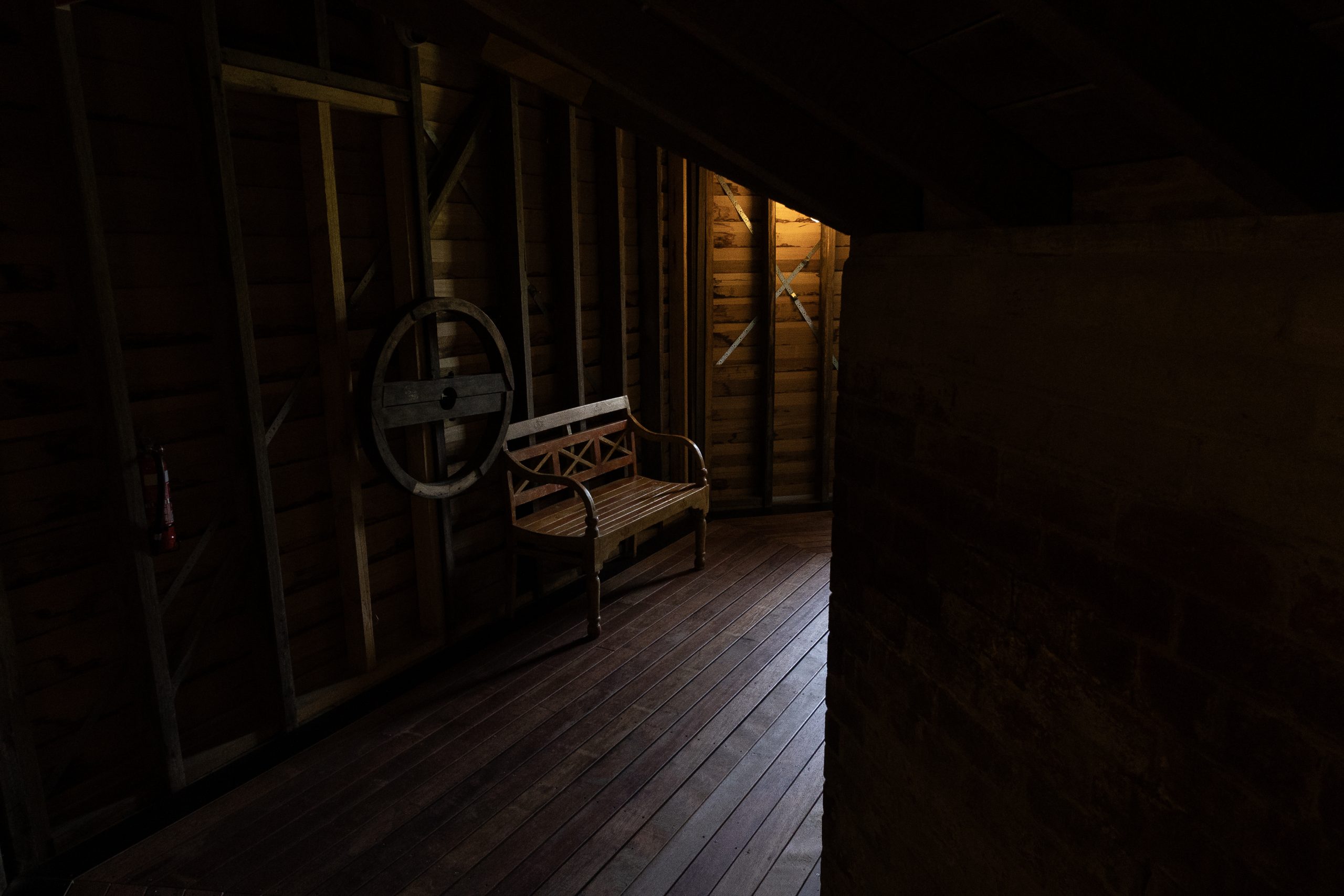
When Carolyn and Graeme Holmes first laid eyes on Ranelagh’s historic hops kiln, they knew it was something special.
With an eye for old buildings and a desire for a southern tree change, they had relocated from another picturesque valley – the Hunter in New South Wales – with their son, daughter-in-law and two grandchildren.
“It was just a building sitting here – it really wasn’t functioning for anything,” Carolyn remembers.
“But we could see a lot of potential, particularly in the kiln itself. And the space – I like space, particularly in older buildings.”
“I could see what we could do with it.”
Carolyn and Graeme made the move four years ago. Since that time, they have transformed the kiln structure and site with painstaking attention to detail.
Still in its first year of operation, the Kiln Eatery is described on its website as ‘A Historic Gem in the Huon Valley’ and has become a major drawcard for visitors.
Carolyn says she’s hard-pressed to choose a favourite part of the property.
“I think the whole site does actually stand out,” she says.
“Every space has its quirks. I love the Kiln area. I think there’s just a lovely intimacy to it. Even though it’s an old furnace, there’s something cosy about it.”
“I think I prefer downstairs to upstairs, but overall I prefer every bit of it.”

A rich history revealed
Original Kiln owners the Frankcomb family first planted hops along the banks of Mountain River in the early 1900s. They converted the building into a kiln to dry the crop.
The significant heritage quality of the site certainly brought unique challenges for Carolyn and Graeme.
One of those was the building’s sweeping internal staircase.
“The stairs we had to source from Victoria,” says Carolyn.
“Everything else came from Tassie. But it had to be. Nothing is standard height like you get if you build a house, and it was built in imperial times too, so it was all feet and inches.”
“The hand rail likely took six weeks, because it literally had to be piece by piece. It had to comply and just the logistics of getting angles right and everything else. It took a long time. But it has come up well.”
Despite the rigorous hoops they jumped through to get the site operational, Carolyn says for the most part, it was a painless experience.
“The logistics of everything have been very good,” she says.
“Council were very supportive – I certainly didn’t have any worries with Council. Somebody told me that’s basically because we had all our processes in place to start off with.”
“And Heritage (Tasmania) knew that to repurpose a site like this, it was really important to preserve it, and the only way you’re going to preserve it is to make it useful.”

Piece by piece
Graeme’s civil engineering background also assisted with elements of the project, such as the site’s car park.
A “really good” local builder was also employed.
The biggest learning curve? Carolyn says it was the difference between building surveyors in NSW and Tasmania.
“Miles apart!” she says.
“It was for me to get my headspace in, how it would work down here. That was the hardest part about the whole build.”
Carolyn says customers often appreciate the restorative quirks around the site.
“With the different lights you can see things written on the old press… the old conduit that runs around the place, they’re all left in place.”
“We haven’t touched any of that and people notice, so that’s good.”
Customers are also noticing the food. With a steady stream of diners over the summer holiday months (including on Christmas Day), more events are being planned for the Kiln, such as evening soirees and micro weddings, as well as more outdoor dining and a focus on women in tourism.
The adjoining Clifton Homestead accommodation is also proving popular.

Living the vision
Carolyn says the team is working well, there’s a new chef and menu, and they are already looking ahead to the quieter winter months.
“The vision is to have a shared space,” she says.
“We’d like to be able to start bringing small tour groups in now – all that type of thing that brings people to the Valley.”
“It’s a place that has to be used by local people, as well as people from Hobart. We get a lot of people from Hobart, but we also want to get people into the Valley to spend money at other places, to help make the Valley viable.”
With a recent write-up in high-profile global travel magazine Conde Nast and support from the community and local tourism sector, the future’s looking bright.
“In the last ten months, I’ve learned a lot and I’ve learned about networking. Someone told me, this is Tassie, and people don’t mind helping you,” says Carolyn.
“On the mainland, you tend not to ask. But here, it has been fabulous!”
—
: Steve Alden | : Mick Lowenstein
—
For more information:

